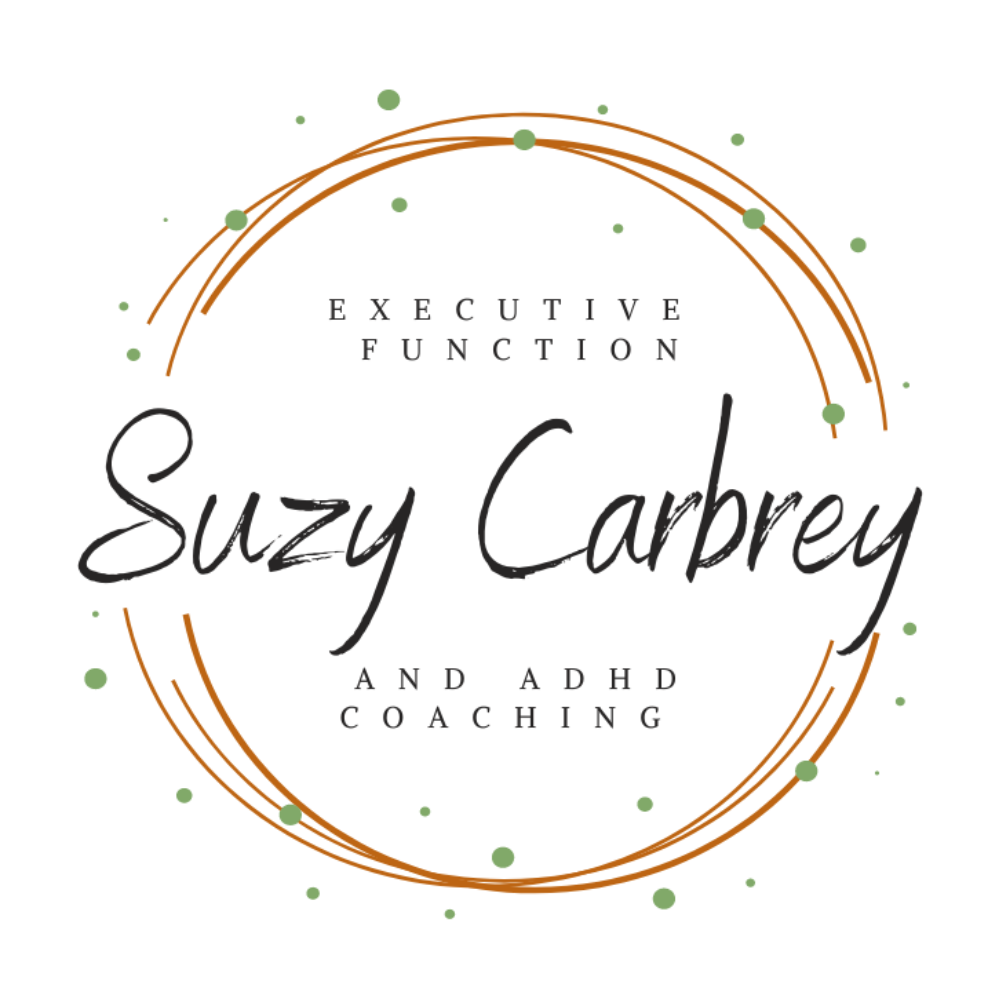When you’re living with ADHD or executive functioning challenges, the support of your loved ones can make all the difference. But what happens when the people closest to you, your partner, your family, or your friends, don’t understand what you’re going through? What happens when their response is more critical than compassionate?
The truth is, many adults with ADHD face this exact situation. They’re working hard to manage their symptoms, build systems that support them, and make progress in life. But the people around them sometimes minimize their experience, suggest they “just try harder,” or become impatient when things don’t go as expected.
If you’re in a relationship with someone who isn’t supportive or who doesn’t yet understand what executive functioning challenges really mean, it can feel like you’re constantly walking a tightrope. You might wonder how to advocate for your needs without damaging the relationship. Or how to set boundaries without it turning into a fight. Or how to stop masking your struggles and be more fully yourself.
This post is for you. Let’s talk about how to advocate for yourself and hold boundaries in a way that’s honest, respectful, and rooted in your worth.
Why Self-Advocacy and Boundaries Matter
First, let’s be clear: advocating for yourself is not selfish, and setting boundaries is not an ultimatum. These are essential tools for creating conditions where growth is possible.
When you have ADHD or executive function challenges, you might already be doing more invisible labor than others realize, just to plan a day, switch tasks, manage your energy, or stay on track. When the people around you aren’t on the same page, that load can double. And over time, it chips away at your confidence and capacity.
Advocating for yourself and setting boundaries are ways to:
- Reduce chronic stress and emotional burnout
- Reclaim your energy and mental bandwidth
- Foster clearer communication and more honest relationships
- Make space for the kind of support that actually helps
1. Start With Self-Validation
Before you advocate for anything externally, it helps to validate yourself internally.
You don’t need anyone else’s permission to acknowledge your needs. You don’t have to prove your struggles are “real enough.” You don’t have to wait for someone else to agree that it’s okay to do things differently.

Try saying to yourself:
- “It’s okay that I need reminders, breaks, or more time to switch gears.”
- “I’m not making this up or exaggerating. This is my real experience.”
- “I’m allowed to protect my energy and ask for what helps.”
When you begin from a place of self-trust, your advocacy will be steadier and more grounded because you’re not looking for validation from the person you’re speaking to. You’ve already given it to yourself.
2. Clarify What You Need (Not Just What You Want Them to Stop)
It’s easy to focus on what’s not working in a relationship, especially when you feel criticized, misunderstood, or dismissed. But one of the most powerful ways to advocate for yourself is to clearly state what would help.
Instead of saying:
“You’re always on my case, and it makes everything worse.”
Try saying:
“When I’m struggling to start something, it helps if you ask how you can support me instead of telling me I’m lazy. That makes me feel more capable and less ashamed.”
Being specific about what would support you, especially if it’s different from what your partner typically offers, gives them a clearer path forward. They may not always get it right, but it opens the door to change.
You might need:
- Quiet, low-distraction time in the evenings
- A reminder instead of a lecture
- A heads-up before switching plans
- Emotional check-ins that focus on encouragement rather than critique
- Shared planning sessions with mutual respect for different approaches
Start small, and be as concrete as possible.
3. Practice Compassionate Communication
Self-advocacy doesn’t have to mean confrontation. In fact, the more you can frame your communication around shared values like connection, trust, and teamwork, the more likely it is to be heard.
Try using “I” statements instead of “you” statements, such as:
- “I’ve been feeling overwhelmed trying to keep up with everything, and I’d love to find a way to work together on some of the planning.”
- “I need a little more transition time when switching tasks. When things move too fast, I shut down, and it takes me longer to get back on track.”
- “I want us to be able to talk about hard things without it feeling like I’m always falling short.”

This invites collaboration rather than defensiveness. You’re not blaming, you’re naming what’s true for you and inviting understanding.
4. Boundaries Are Bridges, Not Walls
Let’s redefine what boundaries are. They aren’t about shutting people out. They’re about creating clear agreements that help you show up more fully in your relationships.
For example:
- “I’m happy to talk about this, but I need to do it at a time when I’m regulated. Can we revisit it tonight after dinner?”
- “I’m working on my focus in the morning, so I’m going to turn off notifications and check in at lunch.”
- “I can’t take on this extra task right now. I know it’s important, and I want to be part of it, but I need to find a way that doesn’t drain me.”
Boundaries can feel awkward at first, especially if you’re used to people-pleasing or minimizing your needs to keep the peace. But over time, they help prevent resentment, burnout, and miscommunication.
They also model something powerful: that you are worth protecting, and that relationships can include both care and clarity.
5. Accept That Not Everyone Will Get It (Right Away—or Ever)
This one is hard, but necessary: not everyone will understand your brain or the way you function. Even people who love you may resist making changes or invalidate your experience. That doesn’t mean you’re wrong or that you have to keep pushing to convince them.

Sometimes, acceptance looks like:
- Choosing not to over-explain
- Taking space from relationships that constantly drain you
- Finding community where you are seen and understood
- Letting go of the hope that someone will change, and choosing to focus on what you can control
You can love someone and still recognize that they are not safe or supportive in certain areas. You can remain in a relationship and still build boundaries that protect your growth. You can stop chasing approval without shutting yourself down.
6. Don’t Do This Alone: Find Support That Gets It
If your partner or loved ones don’t understand what you’re dealing with, it’s even more important to connect with people who do.
- Join a support group for adults with ADHD or neurodivergent traits.
- Work with a coach or therapist who understands executive functioning.
- Surround yourself with friends who affirm your experience and respect your process.
Self-advocacy and boundary-setting become more sustainable when you’re not trying to do them in isolation. Having people in your corner who reflect back your progress, your strengths, and your worth can help you stay the course, even when it’s hard.
7. Small Changes Matter More Than Perfect Scripts
You don’t need to say everything perfectly. You don’t need to draw the ultimate boundary right away. What matters most is that you start showing up differently, little by little, in the moments that matter.
That might mean:
- Pausing before you say yes
- Naming your limits, even when your voice shakes
- Reminding yourself you don’t have to fix someone else’s reaction
- Practicing new responses and reflecting on what worked or didn’t
Growth happens in real time, not in imagined perfect conversations, but in the messy middle where you’re learning to stand in your truth.
Reflection Questions
Here are a few questions to help you explore what this looks like for you:
- What kinds of support do I most need from the people around me?
- Where do I often feel drained, dismissed, or overwhelmed in relationships?
- What boundary would feel like an act of care, for myself and for the relationship?
- What would it look like to advocate for myself from a place of groundedness rather than fear?
- Who can I turn to for support, validation, or perspective as I navigate this?
You don’t have to have all the answers. But asking the right questions can open up new possibilities for how you relate to others and to yourself.
Final Thoughts: Your First Step Is Worth Taking
You deserve to be in relationships where your needs are acknowledged and your way of processing the world is respected, even if the people around you don’t fully understand it yet.
Advocating for yourself and holding boundaries isn’t about creating distance. It’s about creating clarity. It’s how you protect your energy, build mutual respect, and create the possibility for deeper connection, not just compliance.
You don’t have to overhaul everything all at once. The first step might be small. Maybe it’s a single sentence that names what’s true for you. Maybe it’s a quiet moment of self-validation before you respond. Maybe it’s choosing to pause before saying yes.

Start where you are. Start messy, if needed. But start.
Because every time you speak from your truth, support your own needs, or set a boundary that honors your wellbeing, you’re showing up for yourself in a new way, and that ripple can change everything.
Learn more with Online Coaching for Executive Functioning / ADHD
Ready to gain control and enhance your executive functioning? As an experienced and compassionate coach, I specialize in providing support for executive functioning and ADHD. To embark on your journey, please reach out to me at 708-264-2899 or email hello@suzycarbrey.com to schedule a FREE 20-minute discovery call consultation.
With a background as a speech-language pathologist, I have a strong foundation in executive functioning coaching. My graduate degree program in SLP placed a significant emphasis on cognition, including executive functions, and I have years of experience in medical rehabilitation, providing cognitive-communication therapy. Additionally, I have completed an ADHD Services Provider certification program, I am Solutions-Focused Brief Therapy Diamond Level 1 certified and I am trained in the Seeing My Time® executive functioning curriculum.
Experience the convenience and effectiveness of online coaching, backed by studies that demonstrate equal results to in-person services. Parents, professionals, and emerging adults love the convenience and privacy of receiving coaching from their own homes.
Whether you reside in Chicago, Milwaukee, Indianapolis, Kansas City, or anywhere else around the globe, I am here to assist you. Schedule your discovery call consultation today, and I eagerly anticipate the opportunity to work with you!
Please note that although I am a certified speech-language pathologist, all services Suzy Carbrey LLC provides are strictly coaching and do not involve clinical evaluation or treatment services. If you require a formal speech therapy evaluation and treatment, please inform me, and I can provide appropriate recommendations.

